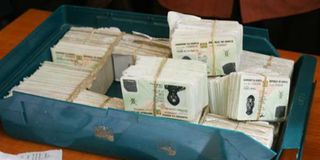ID vetting process unfair

Uncollected ID cards. The operationalisation of the 21-day issuance of ID cards to residents of the northeastern region, as stated by Immigration and Citizenship Principal Secretary Julius Bitok, will restore the hope of access to government services and ensure human rights are upheld.
The operationalisation of the 21-day issuance of ID cards to residents of the northeastern region, as stated by Immigration and Citizenship Principal Secretary Julius Bitok, will restore the hope of access to government services and ensure human rights are upheld.
Article 27 (4) expressly states, “The state shall not discriminate directly or indirectly against any person on any ground, including race, sex, pregnancy, marital status, health status, ethnic or social origin, colour, age, disability, religion, conscience, belief, culture, dress, language or birth.’.
A national identity card signifies proof of citizenship. In the northeastern region, obtaining a Kenyan ID card has become an obligation to be pursued by Kenyan Somalis instead of a right to be facilitated by the state.
Democratic rights
The community members, particularly the youth, are arrested by the police for lack of an ID card. They can also not enjoy their democratic rights because, without an ID, for instance, you cannot vote.
The youth are frustrated when applying for an identification card. There are just too many conditions, such as being asked to produce documents not provided for in law. They also have to pay Sh3,000 to facilitate the vetting process.
Those who pay the amount then appear before a vetting committee and provide their documents. They must answer various questions from the panel. Many are asked to go back and bring additional documents or information.
It is evident that the vetting process is discriminatory. It also delays the acquisition of IDs, deepens ethnic profiling and increases youth vulnerability to radicalisation.
The government should abolish the discriminatory process and treat all Kenyans equally. This will enable citizens to vote, buy the property and enjoy other rights.
Mr Jelle is Garissa County Coordinator, Muslims for Human Rights.



